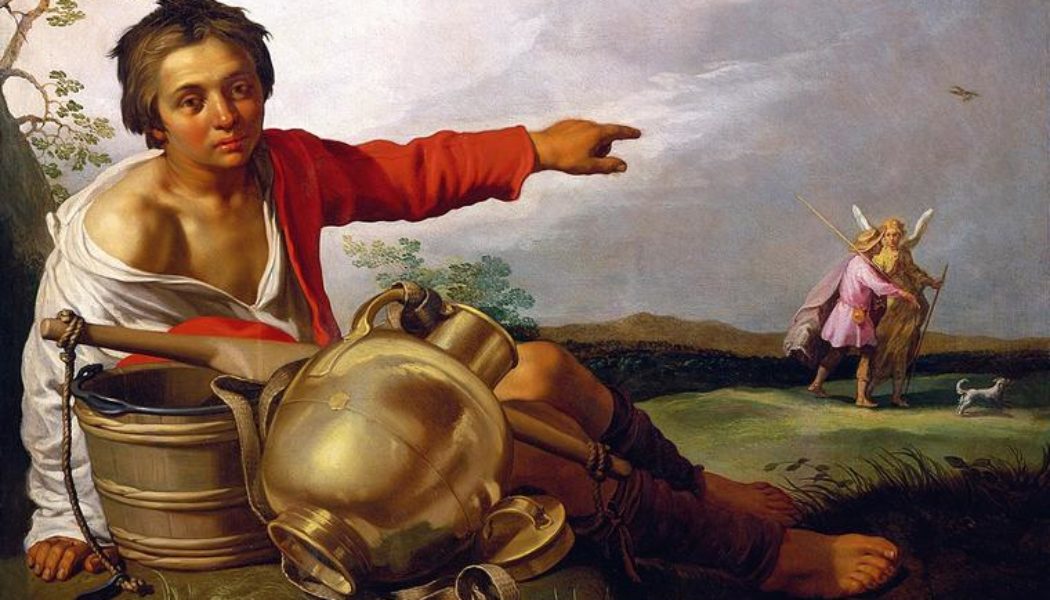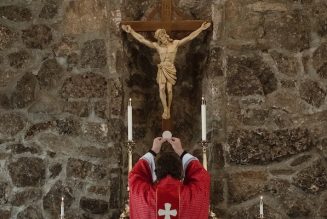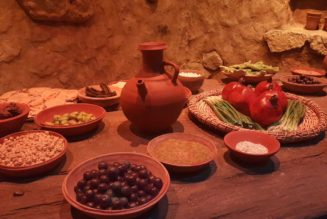
The Book of Tobit, written two centuries before the coming of Christ, tells the story of two families, both Children of the House of Israel, whom, in the midst of the pain and bewilderment of exile, God miraculously joins in holy matrimony. Thanks to the ministrations, to be sure, of an exceedingly clever archangel named Raphael, who, in the exercise of his office as God’s healer, rids Tobit of his blindness and Sarah of the demon responsible for killing off her first seven suitors before Tobias comes along to carry the day.
It is a thrilling tale, yet nowhere is it to be found in the Protestant Bible in any sort of official, which is to say, canonical form. Yes, it is listed among the apocryphal works, but that only means it has no authoritative standing apart from an occasional homiletic application. For men like Calvin and Luther, it was never divinely inspired.
That is not the position of Catholic Christianity. Set out, I’d like to think, along the lines of what someone once said about the doctrine of Purgatory — that, had it never existed, it would certainly have needed to be invented. Otherwise, in reading the Book of Tobit as mythology, and not as a true story told by God himself, one leaves uncertain the truth concerning the mystery of divine love.
And what is that truth but that in the order of salvation — which is not indifferent to or outside of the order of history but rather impinges upon it at every turn — God has given the angels a necessary part to play in his telling of the story. And not only may they be called upon to deliver his messages, but in quite astonishing ways they have come among us to mediate the very love and the mercy that are at the heart of all the messages sent by God.
Can there be an Annunciation, for example, without the Archangel Gabriel there to arrange the event? How else are God and Mary to meet unless there is at least one other, whom God has dispatched in order to introduce them to each other?
“Earth was the only meeting place,” the poet Edwin Muir reminds us. “For the embodied never yet / Travelled beyond the shore of space.” He has come to her, you see, “From far beyond the farthest star, / Feathered through time. Immediacy / Of strangest strangeness is the bliss / That from their limbs all movement takes.” We are thus shown how it is that “through the endless afternoon / These neither speak nor movement make, / But stare into their deepening trance / As if their gaze would never break.”
In the circumstance, it is surely fitting that the invitation to become the Mother of God, to welcome into her womb no less a guest than the Savior of the world, should be issued by no greater a herald than Gabriel, an archangel well-practiced in the performance of such duties. Did he not also appear to Zachariah to announce the birth of John the Baptist? Or to the prophet Daniel, whose visions he set about explaining?
So, of course, one is not surprised to see yet another archangel, Raphael by name, suddenly swoop down from heaven to offer needed assistance when the cry of God’s children is heard amid his angels and his saints. Or that the Catholic Church, in the exercise of her dual role as Mother and Teacher, should choose to spend an entire liturgical week walking us through the Book of Tobit.
Six days in June, no less, spent on telling his story and the details surrounding his life. And the most salient one of all, one which draws our attention, is his undeniable goodness in loving God and neighbor. The latter, of course, will often appear in the shape of the stranger, who longs to become our brother, whose company we must not disdain because, after all, our salvation hangs on our willingness to show hospitality. Even if, from time to time, the neighbor proves to be a dead man.
Before sitting down to dinner, for instance, Tobit instructs his son Tobiah in the art of almsgiving, which means that he needs to go out and find a poor man from among the kinsmen exiled from Israel and bring him back to break bread with Tobit. The only hitch, of course, is that the kinsman on whom Tobias will show hospitality happens to be a corpse, his neck having been strangled in the marketplace. And yet Tobit springs immediately into action, leaving his meal untouched while he carries the dead man home, burying him at sunset in a freshly dug grave. Followed by the mockery of his neighbors, who say to one another: “He is still not afraid! Once before he was hunted down for execution because of this very thing; yet now that he has scarcely escaped, here he is again burying the dead!”
But his is an irrepressible goodness which, however tested by adversity, remains triumphant to the end. Blinded for four years, during which son Tobias and Sarah meet and marry, he will nevertheless be restored, thanks (once again) to the intervention of Raphael who, smearing his eyes with fish gall, the cataracts soon fall away, leaving Tobit more grateful than ever.
Here is a prayer to St. Raphael, God’s appointed guardian sent to lead us to where we need to be. Composed by Ernest Hello, I often give it to my students, warning them of its salutary effects when the intention is to find a good husband or wife. Not altogether unsuitable, I trust, on which to end these brief musings on the Book of Tobit.
O Raphael, lead us toward those we are waiting for, those who are waiting for us: Raphael, Angel of happy meeting, lead us by the hand toward those we are looking for. May all our movements be guided by your Light and transfigured with your Joy. Angel, guide of Tobias, lay the request we now address to you at the feet of Him on whose unveiled Face you are privileged to gaze. Lonely and tired, crushed by the separations and sorrows of life, we feel the need of calling you and of pleading for the protection of your wings, so that we may not be as strangers in the province of joy, all ignorant of the concerns of our country. Remember the weak, you who are strong, you whose home lies beyond the region of thunder, in a land that is always peaceful, always serene and bright with the resplendent glory of God.







